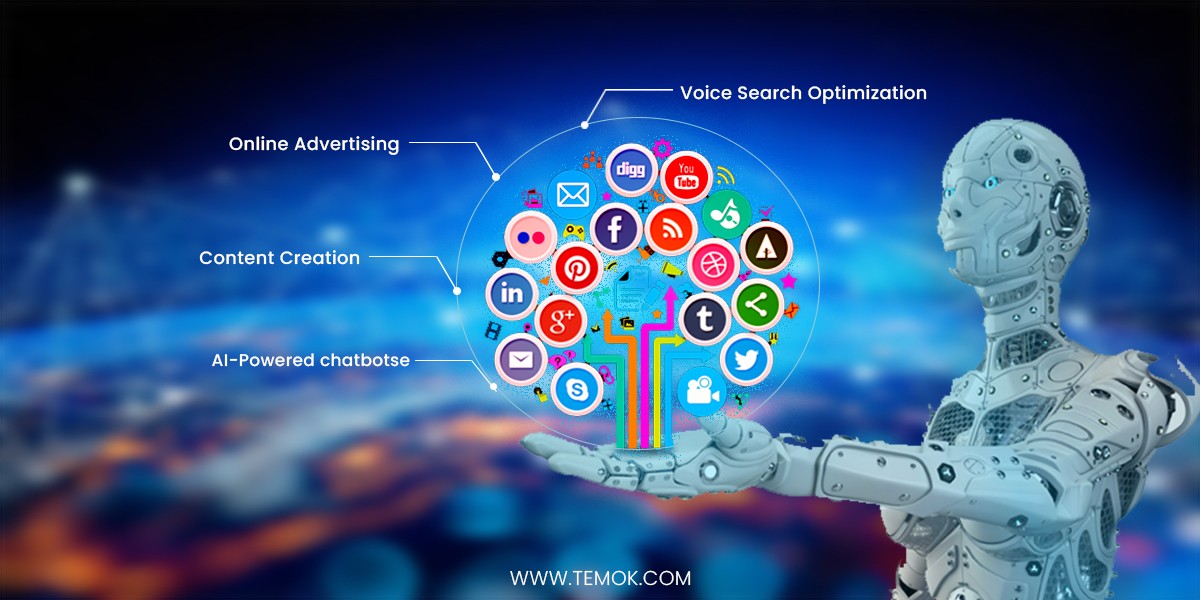The introduction of artificial intelligence (AI) has caused a notable revolution in the advertising industry. AI is revolutionising how businesses communicate with their consumers and deliver effective advertising strategies, from focused audience segmentation to creative campaign optimisation. In this article, we’ll look at the different ways artificial intelligence (AI) is transforming the advertising environment, revolutionising targeting options, inspiring creative concepts, and empowering companies to reach uncommon marketing success.
1. Audience targeting with precision: AI-powered advertising systems use cutting-edge algorithms to analyse massive volumes of data and pinpoint precise audience groupings. AI can assist companies target their adverts to the most appropriate and responsive population, maximising the effect of their campaigns, by analysing demographic data, online behaviour, and consumer preferences.
2. Dynamic ad personalization: With AI, marketers can produce highly customised, dynamic advertising that appeal to specific customers. AI algorithms can create personalised content, modify communications, and even customise images in real-time by utilising data insights. This degree of personalisation improves client engagement and boosts conversion chances.
3. Intelligent ad placement: To choose the most appropriate ad placements, AI systems may examine user behaviour, browsing history, and contextual data. Businesses may maximise the exposure and reach of their advertisements by choosing the best platforms, websites, or social media channels, ensuring that they are seen by the right audience at the right time.
4. Creative optimization: AI technologies can help by analysing previous performance data and spotting trends that result in effective campaigns. Businesses may improve their innovative components, including images, headlines, and calls to action, to increase the efficacy of their campaigns by utilising AI-driven data.
5. Predictive analytics: With the aid of AI, advertisers can predict the results of campaigns and make informed choices. AI algorithms can forecast ad effectiveness, estimate client reaction, and pinpoint possible campaign improvement areas by analysing past data. This enables companies to better manage their resources, optimise their advertising campaigns, and increase their total return on investment.
6. Automated ad campaign management: Budget optimisation, bid management, and ad performance monitoring are just a few of the components of ad campaign management that AI simplifies and automates. Advertisers may focus on strategy and creativity by automating repetitive operations to save time and resources.
7. Fraud detection and brand protection: AI algorithms are able to identify and reduce ad fraud, protecting companies from unethical practices like click fraud or bogus impressions. To reduce the danger of being associated with unsuitable or harmful material, AI-powered brand safety solutions may also analyse ad placements and content to make sure that commercials adhere to a company’s values and rules.
While AI presents fantastic prospects for the advertising industry, companies must also handle privacy and ethical issues. To preserve trust and uphold ethical practices, it is essential to handle consent responsibly and use data in a transparent manner.
As a result of its tremendous capabilities for accurate targeting, dynamic personalization, creative optimisation, and predictive analytics, AI is revolutionising the advertising industry. Businesses may achieve new levels of client engagement, campaign efficacy, and marketing success when they use AI-driven advertising methods. The advertising market is poised to change even more as ethical AI adoption takes centre stage, launching companies into a future of extremely successful and powerful advertising experiences.



